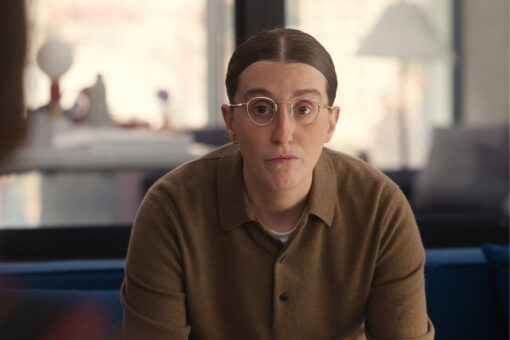On a visit to Barnes & Noble in middle school, I asked my mom to buy me “The Book of Jewish Values,” by Rabbi Joseph Telushkin. We weren’t Jewish — though my paternal grandfather was — nor religious in any way. But I was fascinated by the book’s instructions on applying moral principles in day-to-day situations, from citing your sources to quitting smoking. As I got older, I would flip past the esoteric Ethicist pages in the Sunday New York Times and go straight to the etiquette column, where I could learn about the real nuts and bolts of ethical daily living. I loved the logical process involved in deducing the best next step from a broader moral rule.
In college, I charged into adulthood believing the rest of the world was engaged in the same ethical study as I was, taking pleasure in trying to match their actions to their principles. “Of course the basketball team should suspend our best player while he’s under police investigation,” I’d say confidently. “Sports are about character, not winning at all costs!” My Midwestern classmates were not persuaded, to say the least. I began to feel like an alien who had learned about life from books.
By the time the COVID-19 pandemic hit, and many people refused to change their lifestyles in the slightest, I thought I might be completely alone in my convictions. I read Holocaust memoirs, trying to learn how to behave in a world devoid of principles. Viktor Frankl’s work encouraged me to believe I always have control over one small corner of the world — my own actions — even though “decent people … always will remain a minority.” I decided to take an introduction to Judaism class and begin attending a local synagogue’s Zoom services.
At the time, my friends and I worked for employers who emailed us anti-vaccine misinformation, logged our every keystroke with productivity software because they felt sure we’d spend every work-from-home day watching Netflix and, in one case, asked employees to donate PTO to a coworker who became gravely ill after being required to work in the office during a known COVID outbreak. I strained to understand the principles behind any of these actions. (Is fear a principle? Is greed?) One day, I received a different type of email, this time from the synagogue.
Synagogue leadership wrote to inform us that they had made the difficult decision to part ways with a core team member for noncompliance with “an important synagogue policy.” Because vaccines had just become widely available, one could surmise what the policy might be. The policy, the email said, served one of the highest values of Judaism: pikuach nefesh, saving life.
The message felt like seeing another traveler in the desert. Even though it was difficult, the rabbis and the board of trustees had started from a shared moral principle, and then acted accordingly — just like in my beloved Telushkin book. Several months later, I converted to Judaism. I took the Hebrew name Gavriella to honor my personal Jewish hero whose principles transcend her situation, former U.S. Congresswoman Gabrielle Giffords.
Joining a Reform congregation made me realize just how breakable my principles had been when I believed they were mine alone. For example, in college, I dated a guy who vociferously opposed any social plan that did not involve alcohol. Whenever I suggested we take the night off from drinking, he would tell me I was lame and that no one would ever be interested in the types of booze-free dates I proposed. At first, I thought maybe he was right and joined him in drinking to excess, with predictably poor results. Then, I was furious with him for being reckless and cruel to me. It was only years later, after he got sober, that I saw how my reactions hurt both him and me. I was engaging with a diseased idea that deserved neither consideration nor debate.
The position I took — that the desire to be cool is not a good reason to take risks with your health and safety — is a time-tested truism that follows the moral principle of pikuach nefesh. It was not “just like, my opinion, man,” to paraphrase a classic film by two Jewish brothers. If I had understood that my then-boyfriend was not fighting me but the fundamental principles of well-being, I might have been able to react compassionately, recognizing his words as a cry for help.
I believe some principles are universal. As the filmmaker Cecil B. DeMille said, “We cannot break the Ten Commandments. We can only break ourselves against them.” Where we should continue to debate and engage one another is the application of the principles, the “wrestling with God” that defines the Jewish people, so that we can fight dogma, stagnation and injustice. Each time I attend Shabbat services, I’m among other people who have carved that moment out of their lives to focus on the big, important things: What can we do to help the sick? How can we bring more peace to our communities? When I re-enter day-to-day life, I feel stronger and more courageous. During the early pandemic, I even found the words to speak up at work about COVID misinformation.
Millennial and Gen Z women are leaving organized religion in record numbers, many citing oppression against women within some branches of religion, according to research by the American Enterprise Institute. Many religious institutions are due for a reckoning. But we also know an individualistic society rarely works. Even the most determined, self-serious 12-year-old who spends her Barnes & Noble money on rabbinical texts will falter without others who share her values. Becoming Jewish has taught me that we need wisdom traditions and we need community around them, or else we are each rowing our own small boat, susceptible to every shift of the wind.



